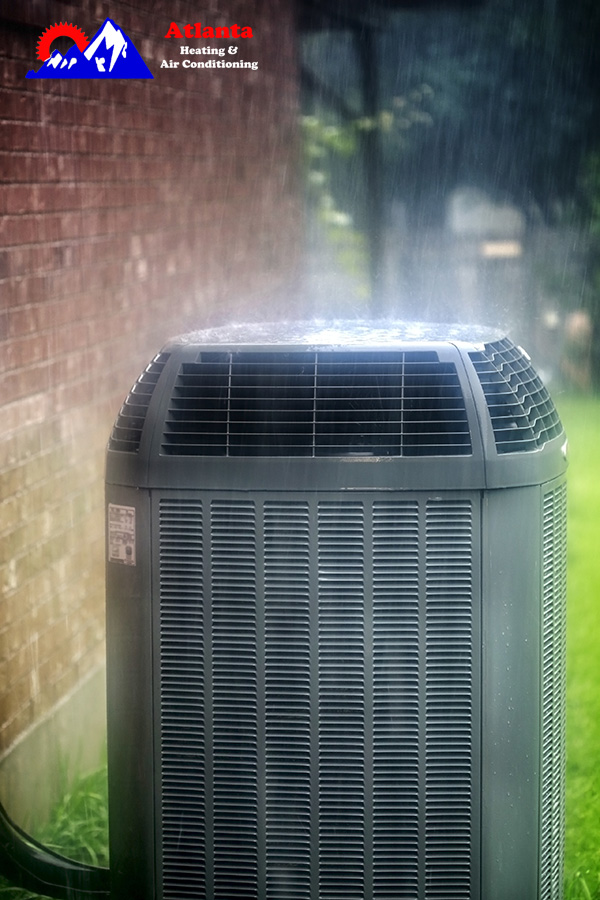Tips For When Your AC Floods

Atlanta, GA – If heavy rains hit the area and flood your AC unit, do you know what to do to protect your air conditioner? Phil Montgomery, owner of Atlanta Heating and Air Conditioning offers some tips to help.
Do you know what to do if your AC unit floods? An Atlanta HVAC expert offers some tips.
“A flooded air conditioner can cause a host of problems,” says Montgomery. “But before you jump in to try to save your unit, it’s important to assess the situation to ensure your safety.”
Montgomery says there are three main things to consider when deciding whether you need to call for AC repair.
- How much time did your unit spend underwater? If it was a significant amount of time, it is more likely that your unit has experienced some sort of damage, and you should call an AC technician.
- Was the power still on to the unit while it was flooded? If this is the case, greater damage could have been done while the power was on.
- Did your unit fill with dirt and other debris, in addition to water? Debris can harm the way the unit works.
Before calling for AC repair, you may also want to check your homeowners insurance. Many policies won’t cover the cost of repair or a new unit due to flooding, but might because of fallen tree limbs or wind damage.
Do not touch the unit until you have turned off power – this will prevent injury to you and further harm to your unit. Go to your fusebox and flip the breaker associated with your air conditioning unit.
Outdoor units are built to withstand rain, but it should never be submerged in water. If you are worried about flood damage, there are a few things you can check yourself before calling for repair. First, check the wires, connectors and all electrical components for any signs of corrosion. Next, check to see if the seal on the condenser fan motor has been broken, or if there are signs of water damage to the motor. You can then check for debris in the coils.
Your indoor unit will be more susceptible to water damage. As little as six inches of water could be enough to damage the unit. Before inspecting it, be sure you’ve also turned the AC off at the thermostat to ensure there is no electricity flowing to the unit.
“It’s important to remember that it can take a while for the effects of water damage to make themselves known,” says Montgomery. “Water can cause rust or corrosion that can take time to set in, and water can actually shorten the life of your AC’s motor.
If you believe your unit may have suffered water damage, schedule an appointment with Atlanta Heating and Air Conditioning today.




